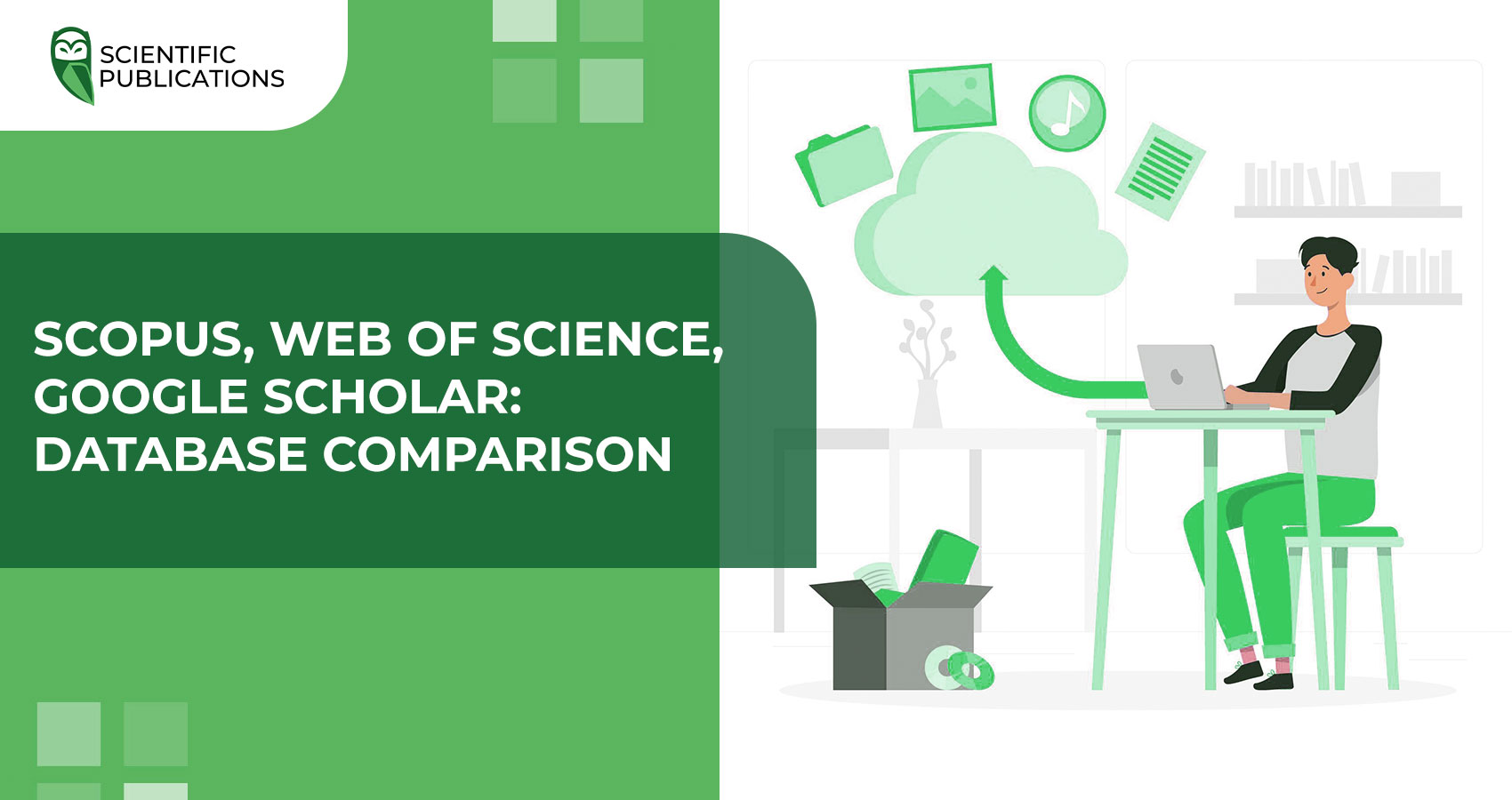In today's world, scientific research plays a huge role. Researchers use various databases to search for information on a topic of interest, track the publications of colleagues and assess the impact of their own work. The three most popular ones are Scopus, Web of Science and Google Scholar.

Scopus
Scopus is a database developed by Elsevier and is the world's largest collection of abstracts and citations of scientific literature with over 76 million records. It covers a wide range of scientific fields including natural sciences, engineering, medicine, social sciences and humanities.
Benefits of Scopus:
- Extensive coverage: Scopus includes a large volume of scientific journals, conferences, and books, providing broad access to different fields of knowledge.
- Citation: Scopus provides information on article citations, which helps researchers assess the impact of their work.
- Analytics: Scopus provides tools to analyze metrics.
Web of Science
Web of Science is another large database developed by Clarivate Analytics. It includes more than 21,000 scientific journals, as well as conferences and books.
Benefits of Web of Science:
- Data quality: Web of Science is known for its high standard of data quality and strict criteria for inclusion of publications.
- Citation: Like Scopus, Web of Science provides citation information, which is useful for assessing scientific impact.
- Interdisciplinarity: Web of Science covers different areas of knowledge, making it useful for multiple researchers.
Google Scholar
Google Scholar is a free database created by Google covering a wide range of scholarly research including articles, books, dissertations, preprints, and other sources.
Benefits of Google Scholar:
- Free access: Google Scholar is available to all users for free.
- Extensive coverage: Google Scholar includes a large number of sources and covers different areas of knowledge.
- Ease of use: The Google Scholar interface is easy to use and intuitive.
A comparison of Scopus, Web of Science, and Google Scholar:
Coverage:
- Scopus: About 70 million records, covers articles, books, conference proceedings, and other sources from more than 22,000 publishers and 5,000 repositories.
- Web of Science: About 60 million records, covers articles, books, conference proceedings, and other sources from over 20,000 publishers and 300 repositories.
- Google Scholar: About 160 million records, covers a wide range of material including articles, books, conference proceedings, dissertations, technical reports, websites, and other sources.
Quality:
- Scopus: Applies strict selection criteria to indexed sources, focusing on peer-reviewed journals and highly ranked publishers.
- Web of Science: Also uses strict selection criteria, emphasizing influential journals and publishers in the social sciences.
- Google Scholar: Indexes a wide range of material, including both peer-reviewed and non-peer-reviewed sources.
Search Features:
- Scopus: Offers advanced search functions that allow you to filter results by author, title, subject, publication date, and other criteria.
- Web of Science: Provides similar search features, with an emphasis on citation analysis and bibliometrics.
- Google Scholar: Known for its simple and intuitive search interface, as well as the ability to search the full text of articles.
Access:
- Scopus: Paid subscription available through institutional subscriptions or individual purchase.
- Web of Science: Paid subscription available through institutional subscriptions or individual purchase.
- Google Scholar: Free access to all content.
Target Audience:
- Scopus: Researchers, scientists, librarians, and information professionals.
- Web of Science: Researchers, scholars, librarians, and information professionals, especially in the social sciences.
- Google Scholar: A broad audience, including students, teachers, researchers, and anyone interested in scholarly information.
Database Selection:
- To search for peer-reviewed articles from highly ranked journals: Scopus or Web of Science.
- To search a wide range of scholarly materials, including non-peer-reviewed sources: Google Scholar.
- For easy and convenient search: Google Scholar.
- For citation analysis and bibliometric indicators: Scopus or Web of Science.
It is important to note that no single database is exhaustive. To obtain the most complete search results, it is recommended to use several databases.
Publishing an article in a peer-reviewed journal indexed in Scopus or Web of Science can be a significant step in your research career.
With Science Publishing, you can increase your chances of getting your article published in a prestigious journal and take a significant step in your research career. Contact us today to learn more about how we can help you!





